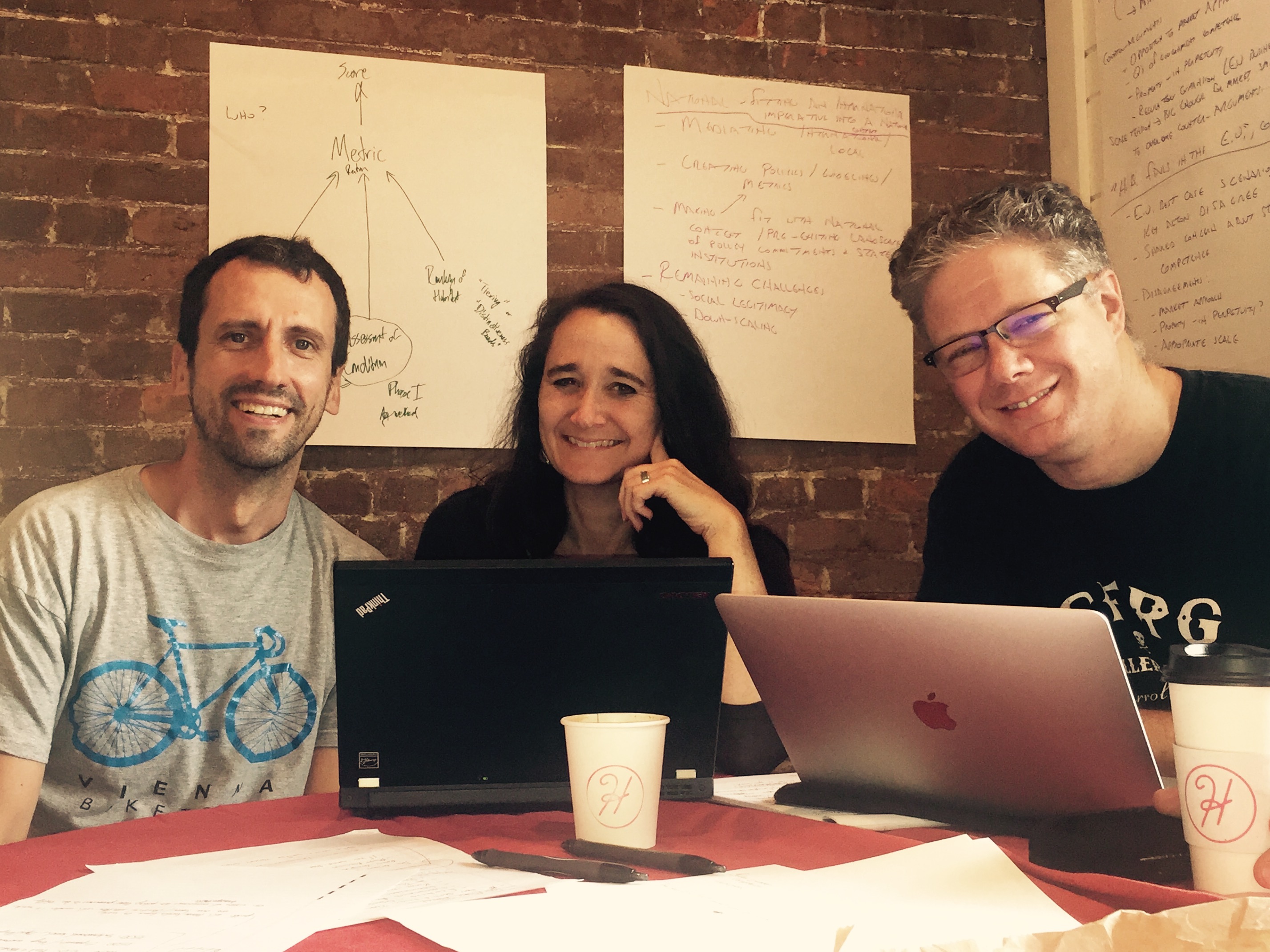By Rebecca Lave
Esteve Corbera, an ecological economist at the Autonomous University of Barcelona, was an IAS Visiting Fellow last fall as part of a joint research project with IU faculty member Rebecca Lave (Geography), and University of Wisconsin–Madison faculty member Morgan Robertson. Corbera, Lave, and Robertson used the time together in person to jointly analyze their data, outline three articles they intend to co-write, and draft most of the first article. Corbera also gave a public lecture in the Social Science Research Commons, attended by faculty and students from Geography, SPEA, and CLACS. It was a whirlwind and wonderfully productive two weeks, heavily fueled by Hopscotch coffee (see picture)!
The project, funded by the National Science Foundation, investigates the initiation of market-based environmental management in the EU in the form of habitat banking. In habitat banking, an entrepreneur speculatively acquires property with damaged habitat and restores it. The habitat “credits” thus produced are available for purchase to offset harm from development projects elsewhere, in hope that capitalist free-market approaches will succeed where regulation alone has failed. While entrepreneurial, market-based approaches to conservation have been in play in the US for nearly forty years, the advent of such approaches in the EU has sparked great debate, and it is not yet clear how habitat banking will be implemented at EU, national, and sub-national levels. Corbera, Lave, and Robertson’s collaborative research project studies the debate over, and rollout of, habitat banking in the EU through comparative analysis of four early adopter EU member states: France, Germany, Spain, and the UK.


